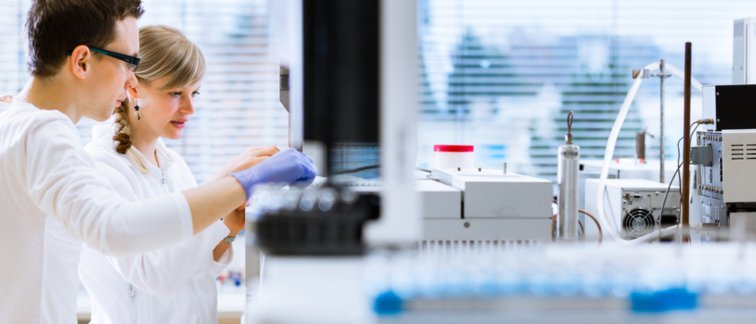Department of Physiology
Disease mechanisms in hypertrophic cardiomyopathy
Hypertrophic cardiomyopathy is frequently caused by mutations in genes encoding sarcomere proteins. Our group defines pathomechanisms which are triggered by the sarcomere gene mutation, and studies which additional disease factors (gene variants, stressors) cause disease. We test specific compounds which may delay and/or reverse cardiac dysfunction and remodeling.
Techniques: protein analyses (electrophoresis, gel stainings, western blot), histological analyses/microscopy, functional studies (single cell, engineered heart tissue, endothelial cell-cardiomyocyte cross-talk).
Contact
Prof. Jolanda van der Velden: j.vandervelden1@amsterdamumc.nl
Dr. Diederik Kuster: d.kuster@amsterdamumc.nl
Vascular integrity and endothelial cells
We study the molecular basis of vascular integrity. The research focus is on endothelial cells, the cells that line all blood vessels, and the machinery which controls their cell-cell contacts. This relates to control of cytoskeletal dynamics and protein degradation. Key proteins we are interested in are RhoGTPases and the enzymes that regulate their function. Our research combines biochemical and biophysical techniques with protein expression studies and high-resolution imaging of live endothelial cells.
Techniques: Endothelial cell isolation and culture; Western blotting; immunoprecipitation; cell transfection; siRNA studies; confocal microscopy; superresolution imaging; live cell imaging; expression of fluorescent proteins; biochemical assays for protein ubiquitylation; assays for endothelial integrity and vascular leakage; 2D and 3D flow models.
Contact
Prof. Peter Hordijk: p.hordijk@amsterdamumc.nl
Dr. Igor Kovacevic: i.kovacevic@amsterdamumc.nl
Long non-coding RNAs in cardiovascular disease
Most of the genome is transcribed in RNA, but only a fraction actually codes for protein. Our group studies the role of the so-called non-coding RNAs in cardiovascular biology. We particularly focus on long non-coding RNAs that are regulated during aging. We aim to unravel how individual non-coding RNAs regulate cardiovascular function, with the aim to identify non-coding RNAs that can be targeted therapeutically.
Techniques: Quantitative (real-time) PCR, RNA pulldown, RNA immunoprecipitation, cloning, deep sequencing analysis, advanced microscopy, siRNA transfection, gapmeR transfection, lentiviral overexpression, CRISPR-dCas9 overexpression tools.
Contact
Prof. Reinier Boon: r.a.boon@amsterdamumc.nl
Department of Molecular Cell Biology and Immunology
Targeting Immunometabolism to improve macrophage function and disease outcome
Our lab is interested in how metabolic pathways regulate macrophages. By targeting metabolic enzymes and pathways in macrophages, we aim to improve their functions and disease outcome, particularly focussing on cardiovascular diseases and cancers. To do so, we use a combination of human and mouse cellular and molecular models, in vivo approaches and validation in patient biopsies. We are especially interested in how immunometabolites control inflammation and regulate disease progression. By unravelling key questions in macrophage immunometabolism, our overall goal is to demonstrate whether and how targeting macrophage metabolism could be used for future therapy.
Techniques: metabolic profiling (including Seahorse flux analysis), functional screening, human and mouse primary cell culture, flow cytometry (FACS), bioinformatics.
Contact
Dr. Jan Van den Bossche: j.vandenbossche@amsterdamumc.nl
Department of Pathology
Viral myocarditis and sudden death
Viral myocarditis (VM) is an inflammatory disease of the heart that is associated with acute and chronic heart failure and also with sudden death and arrhythmias. Previous studies have shown that the myocardial inflammatory infiltrate associates with sudden death. In mouse models of VM as well as patient material we want to investigate how the local (heart) and systemic (blood, spleen and bone marrow) inflammatory responses associate with sudden death through cardiac arrhythmias and myocardial infarction.
Techniques: Echocardiography of heart function and ECG of conscious in VM mice; Tissue analysis via (immuno)histochemistry immunofluorescence, Tissue/cell culture, Flow cytometry.
Contact
Dr. Paul Krijnen: paj.krijnen@amsterdamumc.nl

